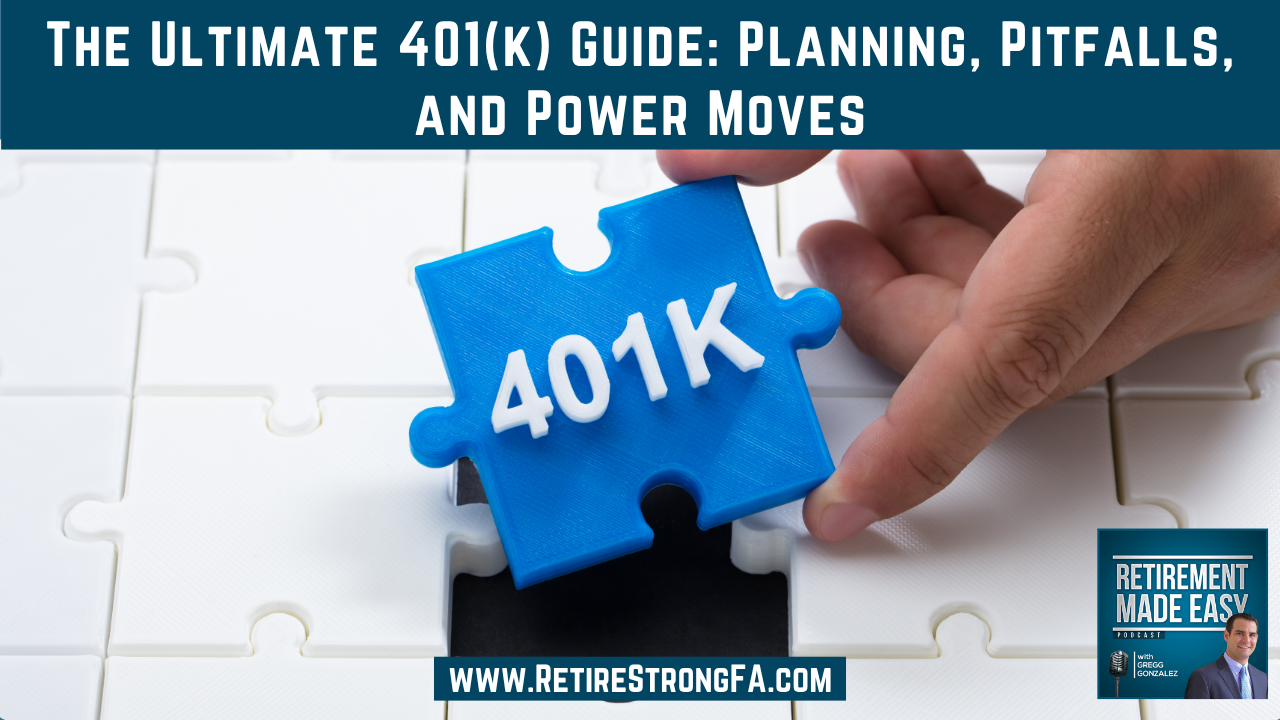
In this episode of the Retirement Made Easy podcast, I delve into 401(k)s: how they work, why they matter, and how to maximize their benefits. I break down the basics in simple terms, just like I always aim to do, because retirement planning shouldn’t be confusing. I discuss the differences between good and not-so-great 401(k) plans, the pros and cons of keeping your money in a 401(k) versus rolling it into an IRA, and how changes in providers can impact your investment options.
I also share a helpful government site for tracking down old retirement accounts and explain why Roth conversions might be worth considering. My goal is to help you take control of your financial future with clarity and confidence.
You will want to hear this episode if you are interested in….
- (00:00) Intro.
- (00:27) Overview of 401(k) Plans.
- (01:40) Resources and Services Offered.
- (02:48) Deep Dive into 401(k) Plans.
- (05:13) 401(k) Rollovers and Conversions.
- (10:53) Employer Contributions and Vesting.
- (19:52) 401(k) Loans and Company Stock.
- (22:58) Mega Backdoor Roth and Final Tips.
Smart 401(k) Moves: What to Know About Matching, Vesting, and Rollovers
I will explain how Roth conversions can be done while you’re still working or after retirement, depending on your 401(k) plan’s rules. Not all plans allow them, and some require a hefty 20% tax withholding, which could be a drawback. I also break down how employer matching works (some companies offer generous matches, others offer none, and vesting schedules determine how much of that match you actually get to keep). I stress the importance of checking your vesting status before leaving a job.
Then I dive into profit-sharing, which can be even more valuable than matching, but it’s never guaranteed. I clarify a common misconception: rolling over funds from an old 401(k) or IRA into your current 401(k) won’t earn you a match. Finally, I talk about the pros and cons of rolling old 401(k)s into either your current plan or a rollover IRA. Personally, I favor rollover IRAs for their flexibility, investment freedom, and ease of Roth conversions.
Unlocking 401(k) Opportunities and Avoiding Pitfalls
I caution listeners about 401(k) loans. If you retire or get laid off, that loan must be repaid quickly, or it becomes taxable. Once you leave your employer, you can’t take out new loans from your 401(k) or IRA. I also touch on company stock in your 401(k); if you have a large concentration, talk to your financial planner about a tax strategy called net unrealized appreciation (NUA), which could work in your favor. Additionally, I introduce the “mega backdoor Roth,” another beneficial strategy that allows high earners to contribute beyond the standard limits if their plan permits it (up to $70,000 annually). Not all plans allow this, but it’s worth asking.
I also share my frustration that there’s no standardized way to compare 401(k) plans across companies. The best thing you can do is request your plan summary document and review it with a fiduciary advisor. Lastly, I offer a tip: some employers let you use unused vacation or PTO payouts as 401(k) contributions, which could help reduce your tax bill. It’s a smart move to look into before you retire.
Resources & People Mentioned
Connect With Gregg Gonzalez
- Email at: Gregg@RetireSTL.com
- Podcast: https://RetirementMadeEasyPodcast.com
- Website: https://StLouisFinancialAdvisor.com
- Follow Gregg on LinkedIn
- Follow Gregg on Facebook
- Follow Gregg on YouTube



